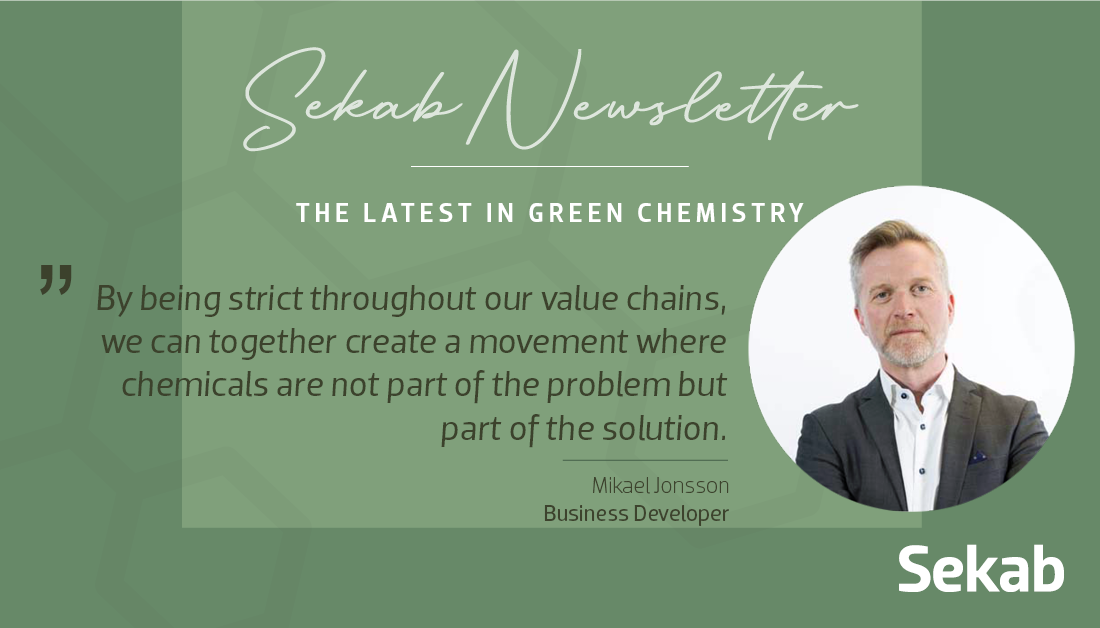It is encouraging news that the world’s total oil consumption, according to the IEA, will decline before 2030 – not a day too soon. At the same time, everyone in the chemical industry must reflect on their own role when the sector is one of only two increasing its usage.
The bad guy in this statistic is the raw material, and that’s why it’s noteworthy that many chemical companies don’t even disclose what they use. Many now focus solely on the CO2 footprint. There are examples where chemicals made from natural gas instead of oil can reduce the footprint, but it’s essential to remember that it is still a fossil product. It is time for a transition, and there is no room for ambiguity.
Gloomy forecasts are meant to be challenged. Incorrect or slow-moving decisions can be changed. Bio-based chemicals made from sustainable carbon atoms exist today. According to McKinsey’s report, there are also plenty of opportunities to create a competitive advantage through smart choices today. Anyone interested in future-proofing and developing their business should make strategies on how to turn around their raw material purchases.
By being strict throughout our value chains, we can together create a movement where chemicals are not part of the problem but part of the solution.

Mikael Jonsson
Business Developer
This is the concluding comment of Sekab newsletter, this time by Business Developer Mikael Jonsson, read all our newsletters here

